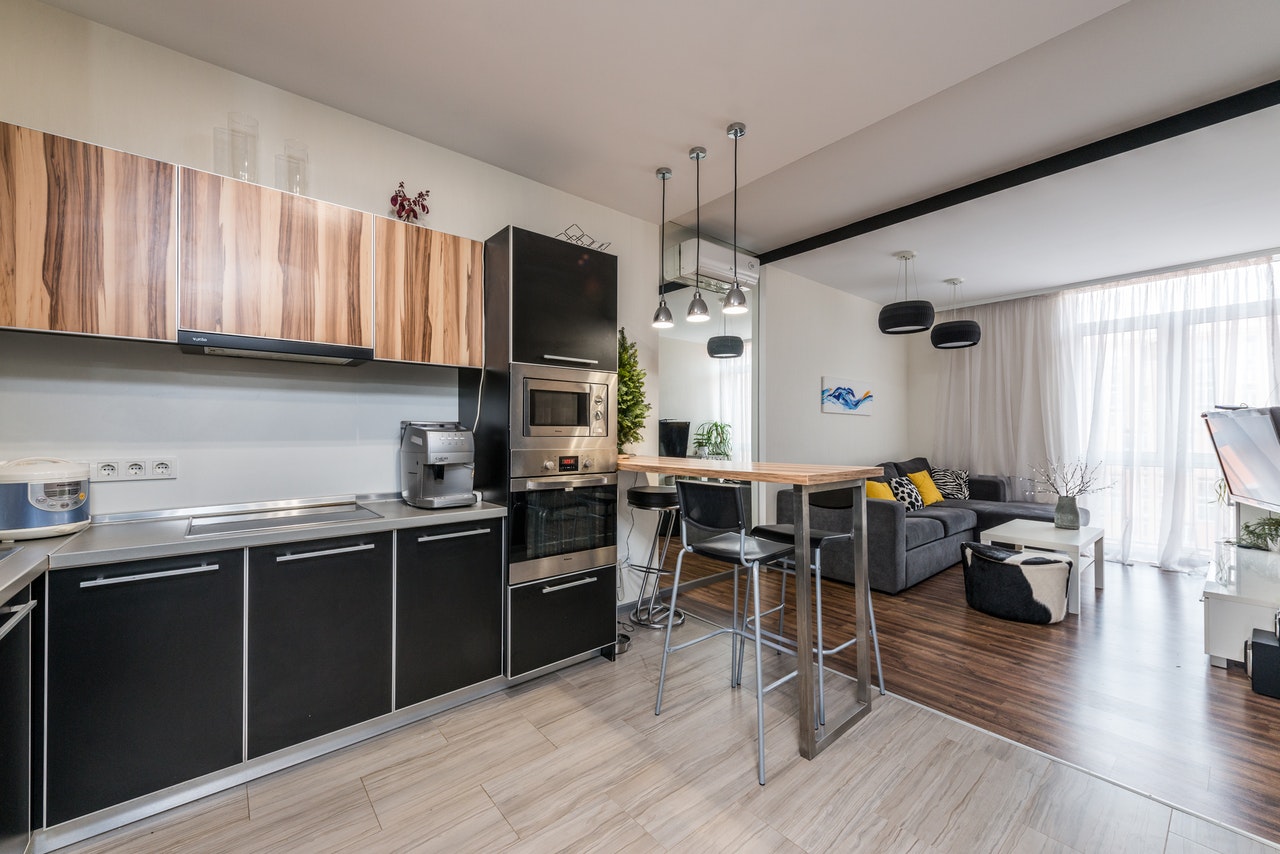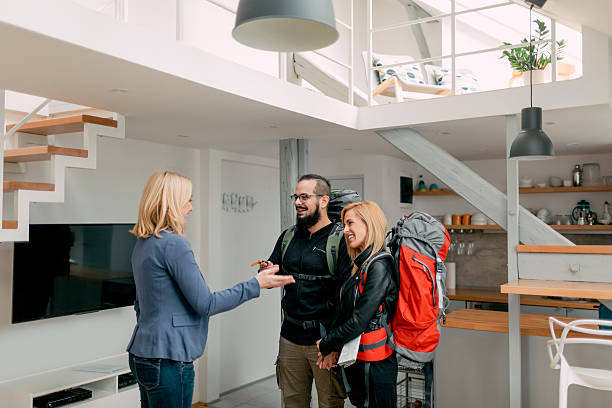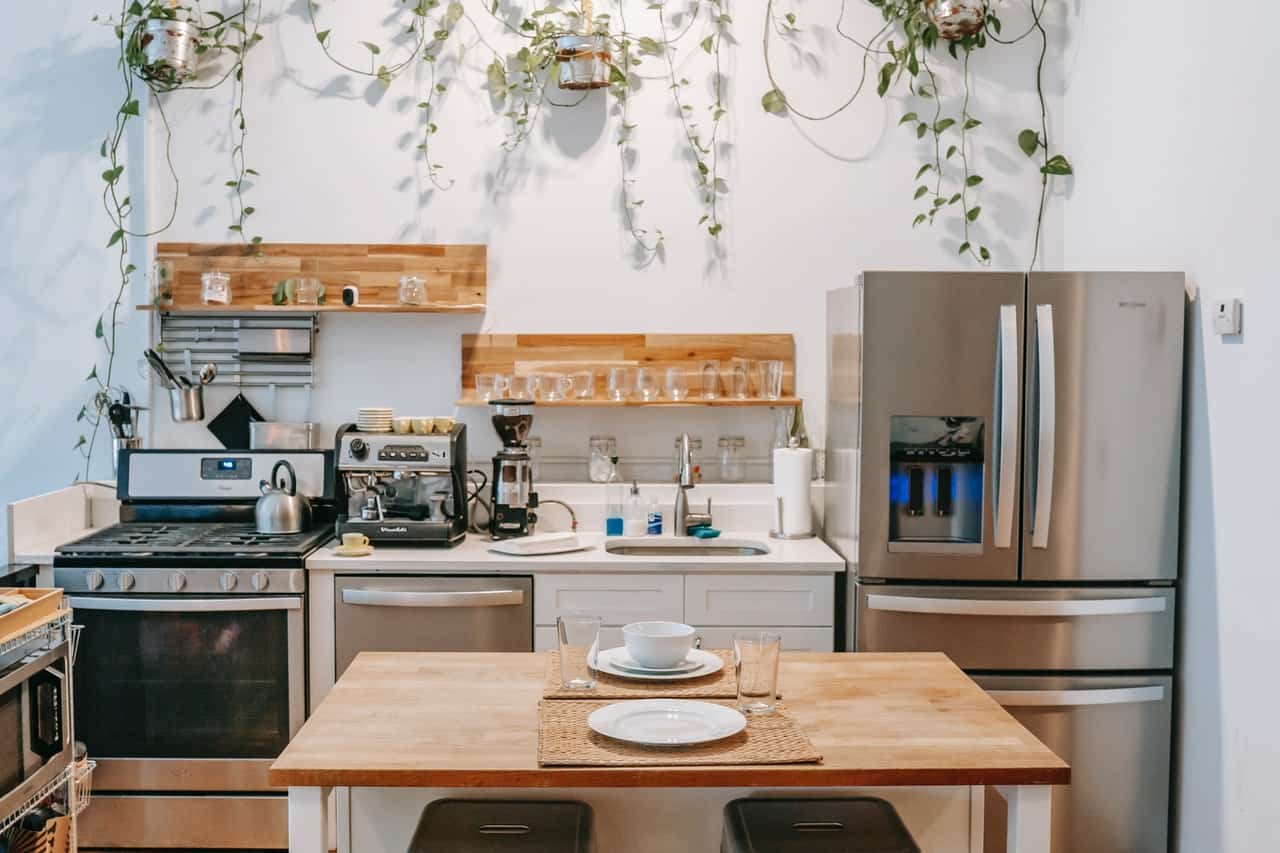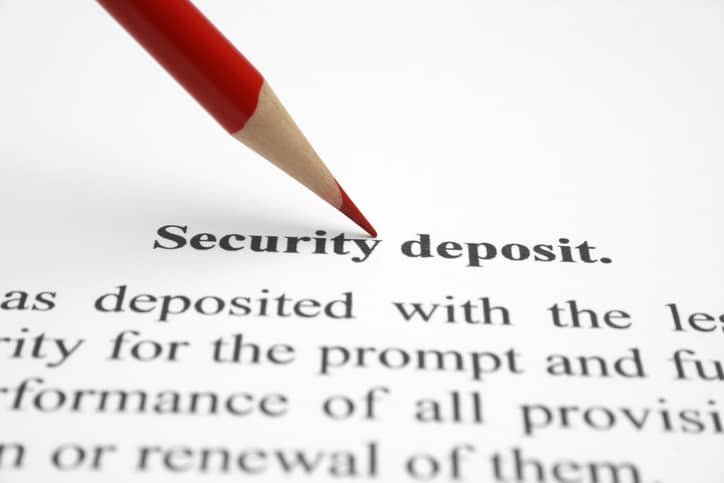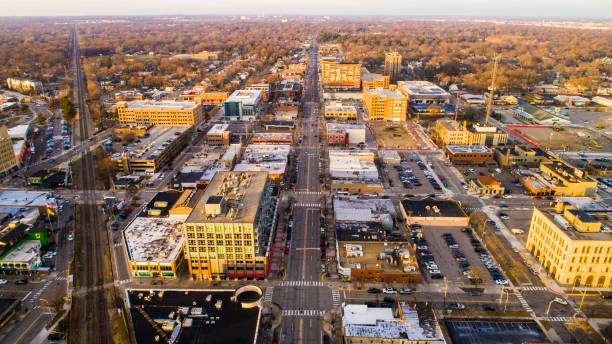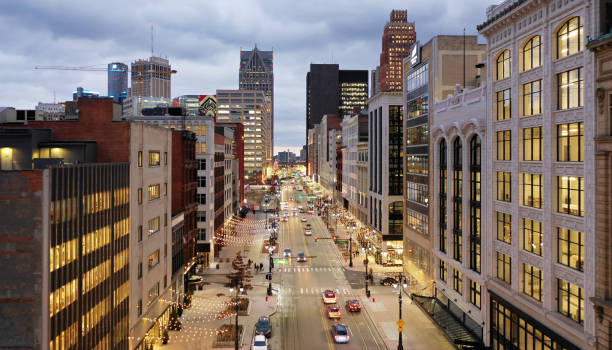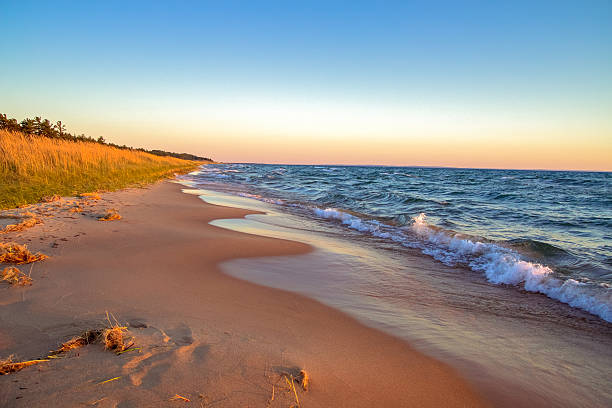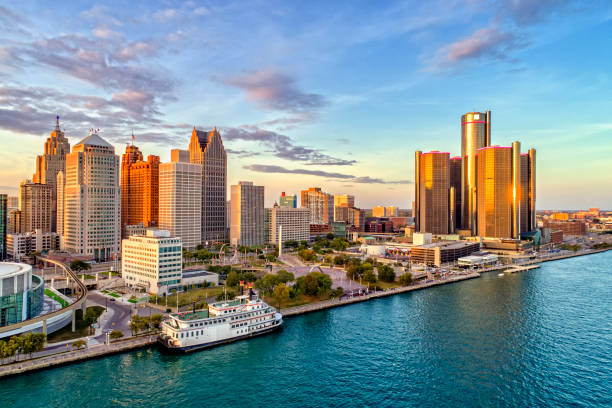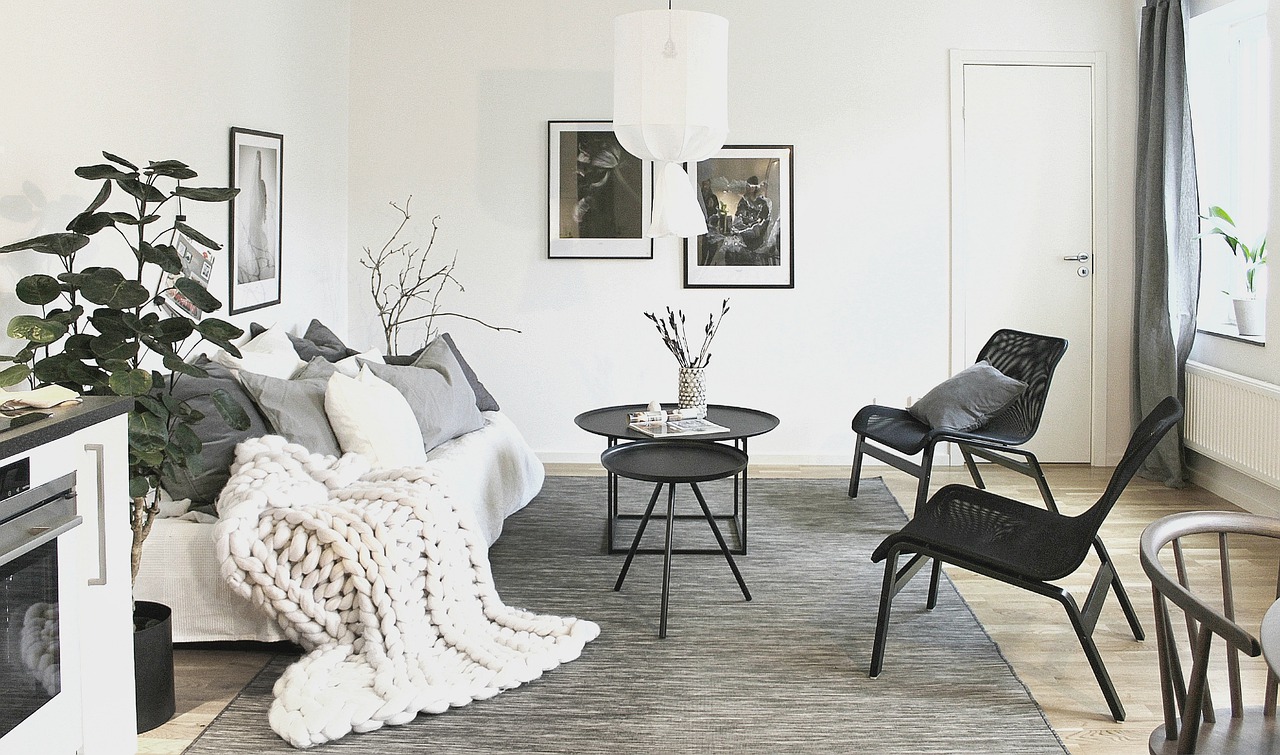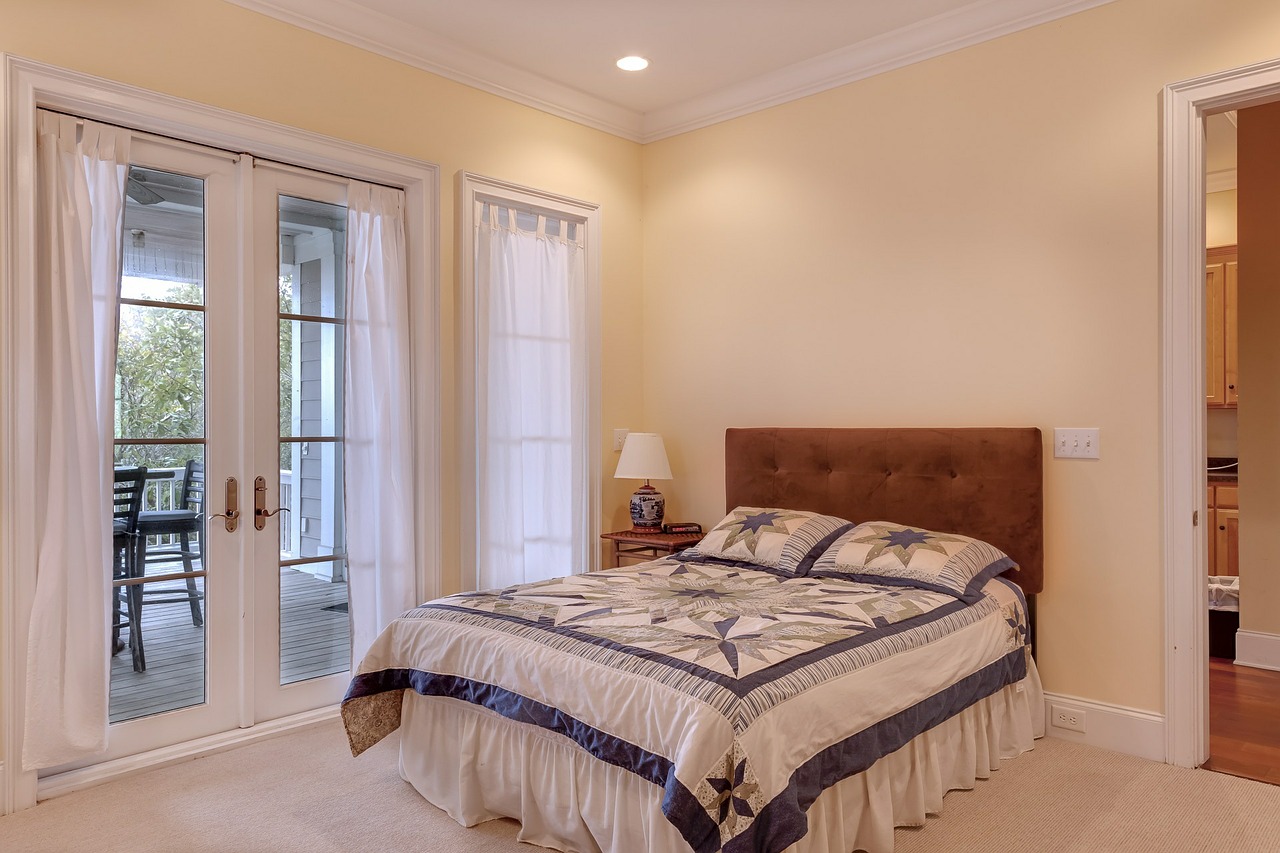October 18, 2021 at 12:29 pm
·
Justin Becker ·
Comments Off on What is the Best Month to Look for an Apartment?
Many renters fancy the freedom of searching for new apartments when their current lease expires, but there are perks to figuring out when to start looking for the perfect apartment.
Moving requires planning and putting into consideration many factors. For example, the real estate rental market is ever-changing; as such, it has a huge impact on whether you will find your dream apartment or not.
It is, therefore, important to be informed when it comes to the best time to rent an apartment.
Are you stuck on when you should start your apartment search? Check out our apartment hunting experience.
Best Month to Look for an Apartment
The best months to search for a new apartment varies depending on your needs. If your goal is dollar savings, the best time to rent an apartment will be during the winter months (between December and March).
However, if you are looking to have a wide range of selections of apartment size, then moving during the summer months will be the ideal choice for you (anywhere between May and September).
The summer and winter periods each carry their own benefits and drawbacks. With that said, you should find out what suits you before deciding which months to relocate.
If you can make a compact plan regarding the time of the year to start an apartment hunt, picking the right month to relocate will make a huge difference.
Even though moving is easier said than done, there are several factors that you need to consider. With that said, as it is always the case, the best time to move largely relies on your situation.
Factors to Rent an Apartment at the Best Time
As said earlier, the winter and summer months position themselves as the ideal periods to start looking for an apartment. However, your choice of the period to move will depend on what goal you’re trying to achieve, among other factors.
Are You Looking to Save Money?
The winter months, between December and March, will be the best time to rent an apartment if you’re budget-conscious. That’s when the demand for rentals is at its lowest, because most people prefer not to move during the colder months of the year.
As such, it’s known to be the cheapest month for tenants looking for their next home.
In addition, being around the holiday season and the end of the year, many renters are much more occupied with visiting friends and family and thinking less about moving.
Another reason could be because most people, especially college students, make big life changes during the summer rather than the winter season.
With that said, many landlords are more willing to lower their rental prices during these winter months to fill the vacancies at their apartment complexes.
According to RentHop, there is an average “discount” of about 3.4% on the rent between the cheapest months (in the winter) and peak months (in the summer).
The survey covered 10 major cities in the U.S. and additionally established that the overall peak-to-slump differences are between 2.0% to 4.7% for one bedroom apartments and 1.6% to 7.1% for two bedroom apartments.
Although these figures may seem small, the total annual savings you make from opting to rent during the cheaper months can be significant.
If you look for housing units in markets with a greater supply than demand, you raise your chances of getting a better apartment deal (fair housing).
RentHop reported that the “best” or cheapest months to rent tended to be between December and March (early winter to early spring) across the 10 cities.
However, before you consider moving during the winter months, check out some of the factors you need to consider:
Breaking a Lease to Move – If you are breaking your lease to move into a cheaper apartment during the winter, you may want to stop and think about the long-term repercussions of your decision.
Breaking a lease can end up costing you more than the savings you might make when you move into a new apartment in December.
Limited Selection – You will have fewer units to choose from since most housing units have been snapped up during the summer. Consequently, you may have to make some compromises to get an apartment at a great deal.
You Want to Have a Wide Selection to Choose From
Many renters relocate during the summer months. This does not come as a surprise since the period between these months is when kids are home on summer break.
College students are also making significant life moves, either by joining or graduating from college. Besides, the weather is generally mellow and more suitable for moving your belongings from one apartment to another.
Summer is a busy month for many apartment renters; it’s that time of the month when people sign long-term leases, like 12 months; it is equally true that it ends at around the same time.
With that said, you have more options to choose from when you opt to rent an apartment during these months. You are more likely to find an apartment that suits your needs during this period.
While you may want to consider the summer period as your best time to look for an apartment, here is what you should keep in mind:
High Rental Prices – The demand for housing units is quite high during the summer period. Many renters are moving from place to place during this time.
As such, since the competition for the ideal rental unit is particularly high during these months, landlords tend to demand a relatively higher rent than they would in December, or other cooler months.
Pressure to Find Apartments – the demand for apartments is relatively high during the summer period; therefore, there is pressure to quickly decide on a particular rental unit to avoid losing it to another prospective tenant.
When is the Best Time to Search and Sign a Lease
Generally, you should start an apartment search 30 to 60 days before you plan to move. It is important to give yourself enough time to look for a house.
You don’t want the final rush that could put you at a disadvantage. For example, if you’re planning to move in February, then the best time to begin your apartment search is in December or January.
There are two ways we recommend that you search for an apartment once you’ve decided on which month to move:
At the Beginning of the Month – Consider searching for an apartment around the beginning of the month.
Most people have their leases expiring around the end of the month; as such, if you’re looking for an apartment around this time, you will find an apartment right as they are being put on the market.
At the End of the Month – For landlords, missing out on a month of tenancy automatically means a significant loss of income for the landlord. As such, they are more willing to negotiate the rental fee to fill the vacancy.
With that said, you will have a greater advantage to negotiate and get your dream apartment within your desired budget.
What is the Best Time of Day to Look for an Apartment?
Knowing what time to look for an apartment will go a long way to helping you get that dream apartment you’ve always hoped for. Whether you are looking for an apartment in a high-demand area or you simply just want the best deal, the time aspect will still be crucial in your quest.
The best time of the day to check listings for apartments online is between 9:00am and 10:00am. This is considered ideal because most property managers and brokers post new listings for newly vacant apartments during this period.
Tips to Getting Cheaper Rent
Naturally, most renters want to get a good deal when it comes to housing. With that said, as rent rises across the nation, one has to be more resourceful to secure cheaper rent.
Negotiating lower rent rates is an art and requires creativity, effort, and time investment on your part.
Negotiating lower rent rates may sound intimidating at first, but you can get your dream apartment the next time you go apartment hunting with our tips below:
Study Your Local Rental Market
The first step to getting cheaper rent is understanding the rent prices (rental trends) for apartments in your area and surrounding neighborhoods. For example, major cities, like New York City, are known for higher rental rates.
You want to have all the information (security deposit, pet policy, and so on) at hand before going out there to search for an apartment.
After research, if you discover that your area has a high vacancy rate, this could be your biggest bargaining chip. Not a single landlord wants to have empty units in the beginning of a new month.
With that said, they would rather give a lower rent rate than keep it empty for another month.
Ask About Deals
Ask your prospective landlord if there are any discounts on long-term leases.
If you like an apartment and plan to stay in the area for the next couple of years, offer to sign a longer lease in exchange for a lower rate. This way, you’ll be saving money in the long term.
Lease with a Roommate
If you’re looking to cut costs, renting with a roommate is the way to go. Besides, you will lower the monthly lease burden and get the benefits of enjoying their company.
Sometimes living with a friend is seamless, but teaming up with an acquaintance is also wise.
However, while a roommate might be a good option, it also comes with some drawbacks that you might want to consider before going out there looking for one.
Some things you may want to consider when choosing a roommate are:
- Relationship – First, take time to decide what you want from your relationship with your new roommate. If you’re new to Michigan, maybe you’d like to find a friend who will join you for dinner and introduce you to their social circle.
Or maybe you’re already established and are just looking for someone to share the bills with while living independent lives.
Whatever you’re looking for, be clear with the other person to ensure that you don’t have different expectations.
- Responsibility – You must understand the financial habits of your potential roommate. This way, you will avoid unpleasant surprises.
You need to make sure that they’re in a position to meet the financial responsibilities of sharing a home.
- Guests – You must ask your potential roommate about inviting guests. How long should they stay at your apartment? Can they spend the night over? You need answers to such questions before agreeing to anything.
Final Thought
The summer months or the winter months could be the best time to rent an apartment. If you want to save money, start looking for an apartment in the winter months, when the rental rates are low.
Or, if you want a wide range of selections, consider searching for an apartment during the summer period, since many renters move during this time.
Read more
October 11, 2021 at 2:25 pm
·
Justin Becker ·
Comments Off on Are Security Deposits for Apartments Refundable?
Signing an apartment lease is part of every renter’s journey and involves agreeing to pay for utilities, deposits, and fees.
When you sign a lease, you’ll be expected to pay a certain amount of money in security deposit upfront.
With that said, what does a security deposit involve, and is it refundable? Before you sign the lease, ensure you understand what security deposits cover.
Let’s look at some critical information you need to understand about the security deposit.
Are Security Deposits for Apartments Refundable?
Before we look at whether security deposits are refundable or not, we must understand what they involve.
What’s a Security Deposit?
Security deposits involve the fixed amount that a tenant pays to a landlord or property manager to ensure that the tenant follows the lease and pays the rent on time.
In most cases, you’ll pay your security deposit before settling on the property. The landlord or property manager holds onto the money until the end of the lease or term of the stay.
The amount of the security deposit typically equals around one month’s rent, however different states have different laws that dictate this amount. For instance, some states set the maximum amount that a landlord can charge for security deposits at a month and a half’s worth of the rent.
Property managers may opt for larger security deposits if the tenant has a low credit score. Most landlords interpret the low score to mean that you don’t always make your payments on time.
Since many landlords ask for security deposits, it would help to factor it into your move-in budget. Understanding your credit score, the state you reside in and the local laws can help you prepare for a big move.
Difference Between Security Deposit and Move-In Fees
Ensure that you don’t confuse your security deposit with move-in fees.
While the security deposit ensures that you pay the rent on time and follow the lease, the move-in cost is a small non-refundable fee, typically equating to the first month’s rent, but can sometimes also include the last month’s as well.
It’s upon the landlord to include the move-in fee on the payments made by tenants. In most cases, move-in fees are based on services offered by the landlord before a new tenant occupies an apartment.
The main differences between a move-in fee and a security deposit include:
- Move-in fees aren’t refundable, while the security deposit is refundable
- A security deposit typically costs more than a move-in fee
- A move-in fee isn’t regulated, while a security deposit is regulated
Are Security Deposits Refundable?
Is an apartment security deposit refundable? Well, YES, but the answer might be more complicated than a simple No or Yes.
For instance, if you leave your rental property in good condition, you’ll have the security deposit returned to you.
A landlord or property manager will only spend your security deposit for two reasons:
- You cause damage to the apartment that’s beyond normal wear and tear
- You owe them past due rent or other payments
The landlord is allowed to channel your entire security deposit towards the replacement or repair of something you damaged. This may include a damaged window or door.
However, most states, including Michigan, have laws regulating how landlords and property managers employ the security deposit process.
Landlords are likely to deposit the money in an interest bearing account. The law requires you to get the security deposit, minus the expenses, noted during a move-out inspection, upon moving out of the rental unit.
It helps to understand the landlord-tenant laws and regulations in your area. Even though the security deposit is refundable, the property manager has several legal reasons to hold onto it, as we’ll see later.
How Much is the Security Deposit?
Even though some states don’t limit the amount that a landlord or property manager can charge on a security deposit, most set the security deposit limit at around one month’s rent.
With that said, some states allow property managers and landlords to charge as high as three months rent, but you also may find places that charge as little as $100 as the security deposit.
The estimated cost of a security deposit typically depends on your background check and credit score.
How is the Security Deposit Calculated?
Landlords and property managers have five factors in mind while calculating their apartment’s security deposits:
- The monthly rent cost
- The state laws
- Security deposits of related and competitive properties
- The quality and type of apartment amenities
- Rental application of the tenant, including their employment history, credit score, criminal history, etc.
A tenant with a good score may be seen as less of a risk for moving out unexpectedly or neglecting to pay rent, compared to someone with a lower score.
In another situation, a tenant who doesn’t earn at least three times their monthly rent might struggle to pay the full rent every month.
Due to such cases, some landlords may seek a higher security deposit from those tenants to offset the risk of losing money.
Difference Between Last Month’s Rent and Security Deposit
If the lease states that the security deposit will be considered in the final rent, the money will only go towards rent payments. The payment won’t be refunded to you or used for damages to the apartment.
If your property manager or landlord only requires the last month’s rent upfront and doesn’t need a security deposit on top of the payment, they have taken financial responsibility to repair any itemized list of damages made by the tenant, upon move out.
The security deposit is, therefore, totally different from last month’s rent.
When to Pay the Security Deposit
In most cases, your property manager will require you to pay the security deposit before you move into the apartment or receive the keys.
If you want to be safe, pay the security deposit at the signing of your lease using an ACH payment, cashier‘s check, or money order.
Ensure you have enough money for the first month’s rent and security deposit before signing the lease. This way, you’ll have no problems when moving in.
When to Get the Deposit Back
If you do deserve to receive your deposit back, you can expect it between 30 to 60 days after you have vacated the unit, depending on the state.
Since you’ll most likely receive the security deposit back in the form of a check by mail, ensure you notify the landlord or property manager of your new forwarding address.
Reasons Why Landlords Don’t Refund the Deposit
There are times when you won’t receive the full amount of your security deposit back. Below are situations that might force your landlord to hold onto some or all of the security deposit:
Termination/Breaking the Lease Early
Suppose a tenant terminates or breaks the lease. In that case, the property manager is allowed, by law, to keep part or all the security deposit, whichever is necessary to cover the costs related to the breach. The exact amount the landlord keeps depends on your state laws.
If there is an early termination in the lease, the landlord will be forced to abide by the terms. If the landlord takes legal action against you, they might charge you attorney fees and court costs.
Unpaid Rent and Utilities
You stand a chance of losing your security deposit if you owe your landlord unpaid costs, such as:
● Unpaid rent
● Unpaid utilities
● Unpaid municipal permit fees
By law, the landlord can keep part or all of the deposit to cover any of the above costs. So ensure you pay any rent owed to the landlord.
As a tenant, you should take the necessary steps before you move out of your apartment to avoid losing the security deposit:
- Give an advance notice: Check your rental agreement to understand the clause talking about the termination of your lease. The lease has the information on the notification you must give before the move-out date.
In most cases, the ideal time you‘re supposed to give the notification is 30–days before the end of your lease.
Make sure that you give the notice in writing rather than relying on a spoken word. If you delay giving the notice, you risk losing your security deposit.
- Separate rent from your security deposit: Many tenants think their security deposit is their last month’s rent. Unless you agree to such an agreement with your landlord, you’ll be required to pay your last month’s rent separate from the deposit.
- Provide your new address: You need to give your new address to your landlord to make it easier for them to return your security deposit.
Even though the security deposit is refundable, you must ensure that the apartment is in good condition, you’ve made all of the past payments on time and that you are current on any outstanding debt.
This is the only sure way of getting your security deposit back when you relocate to another place.
Damaging the Apartment
Most tenants lose their security deposits if they cause damage to the apartment. Ensure you leave the apartment in good condition when you decide to leave it, which includes:
- Put everything back to its original condition: If you changed the arrangement of window treatments or furniture, change them back.
- Remove screws and nails: If you put screws or nails in the ceilings or walls, ensure you take them out and fill the holes properly.
- Replace any broken items: Broken tiles, loose shelves, and essential items that require replacement or fixing must be taken care of before you move out. Neglecting them doesn’t amount to wear and tear.
- Clean up: For instance, clean the appliances and bathroom, including scrubbing the oven. If you don’t, you risk finding a deep-cleaning fee on the list of your security deposit deductions.
- Inspect the property with the landlord or property manager: Before you move out, ensure you inspect the rental with your landlord. The landlord may allow you to fix some issues and point out things you didn’t notice.
Items that are typically considered normal wear and tear:
- Dirty grout
- Some small nail holes on the walls
- Minor stains on the carpet that can come out
- A certain amount of dust, grime, or dirt on the walls, floors, or appliances
- A certain amount of mildew accumulating in grout lines
- Tarnish on bathroom fixtures
- Loose handles on bathroom cabinets or doors
Items that typically constitute as damage:
- Broken doors
- Broken windows
- Missing outlet covers
- Large/multiple holes in the walls
- Holes or huge stains on the carpet
- Broken bathroom vanity
- Extensive water damage on the hardwood floors
- Lost keys at the end of your lease
- Cracked bathroom countertop or kitchen
- Damaged or missing carbon monoxide or smoke detectors
If You Haven’t Received the Deposit
Check the lease agreement for the period you’re supposed to receive the deposit after the lease expires. If it’s more than the time given by either state laws or the lease, reach out to the landlord by email, phone, or personal visit to remind them of the same.
In such a case, the landlord owes you your deposit and should refund it as soon as possible.
If you think it qualifies being a legal issue, you can file your claim in a small claims court.
Read more
September 27, 2021 at 12:47 pm
·
Justin Becker ·
Comments Off on Is Michigan a Good State to Live in?
Michigan is a state in the Great Lakes region of the upper mid-western United States.
Michigan is traditionally known as “The Wolverine State,” and the University of Michigan takes the wolverine as its mascot.
Apart from the Wolverine State, Michigan has other nicknames, including Great Lake State (due to being surrounded by the five great lakes: Lake Superior, Lake Michigan, Lake Huron, Lake Erie, and Lake Ontario), Mitten State and Water-Winter Wonderland.
Michigan’s population is nearly 10.1 million, making it the 10th largest state in the USA. It also has a total area of almost 97,000 square miles (250,000 km2). By the size of land, Michigan ranks 22nd out of the 50 states.
Interestingly, Michigan is the only one of the states to be split into two large land segments: the Upper Peninsula (commonly known as the U.P.) and the mitten-shaped Lower Peninsula. With a total span of approximately five miles, the Mackinac Bridge connects Michigan’s Upper and Lower Peninsulas.
The Upper Peninsula is sparsely populated; however, it is mineral-rich. It slices eastwards from northern Wisconsin, between Lakes Superior and Michigan.
Is Michigan a Good State to Live In?
Michigan has many great reasons to recommend it as an excellent place to live. There’s plenty of year-round outdoor activities by land and sea.
You can call it a state that has it all; it cuts across, from world-class cultural resources, spectacular natural beauty, vibrant cities, to recreational opportunities, all combined with the opportunity for growth.
It’s one state that can breathe a new lease of life to anyone.
There are excellent educational and cultural opportunities in the southern and northwestern parts of the state. There are also rural areas that seem to be straight out of the 1960′s.
Michigan is the state where you can drive around and see everything, from large cities full of the arts and culture to open farmland, small lakes, large forest areas, and, of course, big water. Bottom line is that Michigan has something for everyone.
Besides, Michigan has many cheaper cities you can live in.
What’s the Cost of Living in Michigan?
Whenever thinking of moving to a new state, one of the top considerations will be the cost of living.
Is Michigan’s economy favorable to you? This is one of the questions you must find the answer to.
From bustling downtowns to quaint beachside neighborhoods, Michigan is the 4th most affordable state in the United States, with being 10 percent below the national average. If you compare with other states, Michigan ranks far better.
For example, New York has a 21 percent more expensive cost of living than the national average. In comparison, California’s cost of living is 45 percent more expensive than the national average.
Let’s break down the cost of living in Michigan.
● Housing
● Utilities
● Transportation
● Grocery
● Health
● Miscellaneous
Cost of Housing in Michigan
The housing cost of living in Michigan is 34.5 percent cheaper compared to the national average. Whether buying a home or renting an apartment in Michigan, you’re likely to get it cheaper, when compared to the national average.
For example, the average rent for a studio apartment in Michigan is $692, which is $247 less than the national average. A one-bedroom apartment has an average rent of about $778, which is $270 less than the national average.
For a two–bedroom apartment in Michigan, prepare to spend an average of $979 per month, compared to the national average of $1278 per month.
On the other hand, a three-bedroom apartment will cost you an average of $1255 per month, which is below the national average of $1681.
Lastly, you’d love to hear that renting a four-bedroom apartment in Michigan will cost you an average of $1372 per month, which is also well below the national average of $1950 a month.
The typical home value in Michigan is $211,760. This value is seasonally adjusted and only includes the middle price tier of dwellings. Michigan home values have gone up 16.9% over the past year.
Cost of Utilities in Michigan
Whether you own a home or rent an apartment, utility bills are the type you can never run away from. Primarily it can sky-rocket your monthly spending on housing alone. With that said, how high or low your utility bill is largely depends on your use on a month-to-month basis.
As such, you will want to know where the cost of utilities stands in Michigan, right? The average price of cooling or heating a typical residence for the area, including electricity, natural gas, and other fuels, is slightly above the national average by 0.1 percent.
Even though the average cost in Michigan is slightly above the national average, it doesn’t mean you will be spending more. You can learn how to make your home energy-efficient and spend less every month.
Cost of Transportation in Michigan
Transportation will partly contribute to your monthly cost. Whether you use public means or private means of transport to move from point A to point B, you are going to spend either way.
Now, what does the average cost of transportation look like in Michigan state?
The average cost of transportation in Michigan is 15.1 percent above the national average. These include gasoline, car insurance and maintenance expenses, or mass transit fare for the area.
Cost of Grocery in Michigan
If you plan to live in Michigan, then you should know that Michiganders’ cost of groceries is 6.6 percent lower than the national average. As such, expect to pay less for food products.
While meal prices in Michigan can vary, the average cost of food in Michigan is $29 per day. Based on the spending habits of previous travelers, when dining out, an average meal in Michigan should cost around $11 per person.
Breakfast prices are usually a little cheaper than lunch or dinner.
Cost of Health in Michigan
The average cost of health in Michigan stands at 14 percent below the national average. In other words, expect to pay less in health services than other states in the United States.
Michigan residents are subject to the federal Affordable Care Act (ACA), which requires all U.S. citizens to have health insurance. Qualifying plans must provide at least the minimum standard of coverage outlined in the ACA.
Michigan residents can expect to pay an average of $406 per person for a significant medical individual health insurance plan. Prices will vary, and premiums can be lower if you are in good health.
Let’s take a closer look at insurance costs in Michigan.
| Metal Level |
Average Monthly Premium |
| Bronze |
$406 |
| Silver |
$504 |
| Gold |
$645 |
Cost of Miscellaneous in Michigan
Miscellaneous is the cost of goods and services not included in other expenses of living categories, such as clothes, restaurants, entertainment, repairs, and other services.
The cost of miscellaneous for Michigan residents is 3.3 percent lower than the national average.
Michigan Strikes the Perfect Balance with Affordable Cost of Living and High Quality of Life
Whether it’s a startup or a growing company, many keep choosing Michigan time and time again for the extraordinary business benefits it offers.
Many choose Michigan for its unparalleled Pure Michigan quality of life and living costs, which is 10% lower than the national average.
From the excitement of lively urban centers to the endless opportunities in the great outdoors, Michigan provides the best of both worlds, including vibrant downtowns, shopping districts, and the most public golf courses in the country.
Michigan Consists of Award-Winning Communities
From bustling downtowns to quaint beachside neighborhoods, Michigan is home to various award–winning communities consistently ranked by top travel and lifestyle publications.
For example, WalletHub ranked Ann Arbor the most educated city in America for 2020. It is situated on the Huron River and is nicknamed “Tree Town” due to its abundance of green space.
Ann Arbor is a major center for college sports, most notably at the University of Michigan.
The Ann Arbor area is most well-known for its globally-inspired cultural offerings. Being a long-time artists community, Ann Arbor is home to renowned galleries, museums, arts nonprofits, and theatrical and musical organizations that offer performances from local, regional, and international artists.
Ann Arbor is best known as the home of the University of Michigan. For the maize and blue colors of its nationally recognized football team, the Wolverines, Ann Arbor has much more to offer than just a college.
Livability ranked Grand Rapids, on the other hand, as the #2 Remote-Ready City in the U.S. Grand Rapids is a Michigan city on the Grand River, which is east of Lake Michigan, and offers great city life.
Where Does Michigan Rank in Education?
The education system in Michigan continually produces students that are ready to take on the world. Michigan has a K-12 system.
Furthermore, it’s home to 91 colleges and universities, and 70 vocational and technical schools that offer certificates.
Top School Districts in Michigan:
- Northville Public Schools
- Lake Orion Community Schools
- Hudsonville Public School District
- Novi Community School District
The Top Colleges in Michigan:
- University of Michigan – Ann Arbor
- Michigan State University
- Michigan Technological University
- The University of Detroit Mercy
- Central Michigan University
- Wayne State University
- Western Michigan University
- Hillsdale College
To give you a clearer picture of the education excellence in Michigan, more than 2,000 Ph.D.s are granted every year in the state, which is almost twice the national average.
More than 175,000 engineers are found in Michigan, which is the highest concentration in the United States.
When it comes to research, Michigan’s University Research Corridor (URC) is recognized as one of the top research clusters in the United States. Furthermore, it is also the leading engine for innovation in Michigan and the Great Lakes region.
The primary purpose of the URC is to bring economic prosperity and connect the State of Michigan to the World.
Are there Exciting Outdoor Adventures in Michigan?
If you’re an adventurous person, you’ll find Michigan the perfect spot for all of your outdoor activities. From amazing parks, to historical buildings, to lake living experiences, it’s hard to see Michigan unattractive.
Once you visit Michigan, you’ll always be looking for the next great adventure. Seeing it once is never enough to explore the beauty of Michigan. Simply put, you’ll be compelled to live in Michigan.
For instance, Frankenmuth has been called Michigan’s biggest tourist attraction. Bridge Magazine reported in February, 2021 that Frankenmuth tops all Michigan attractions with about three million visitors a year.
Here are the 14 Best Places You’d Love to Visit in Michigan:
- Mackinac Island
- Detroit
- Great Lakes Bay.
- Sleeping Bear Dunes National Seashore
- Ann Arbor
- Traverse City
- Holland
- Charlevoix
- Porcupine Mountains
- Blue Water Area
- Cheboygan
- Grand Rapids
- Ypsilanti
Generally, Michigan is known for fishing, and ice fishing, thanks to its 3,288 mile coastline, which is the longest freshwater coastline in the United States.
Forestry is also another aspect that provides the opportunity for people to explore nature, with 90 percent of the Upper Peninsula being covered in trees.
Interestingly, Michigan is home to more than 11,000 inland lakes, more than 650 public golf courses, and over 100 public beaches.
If you love trails, this is the best place to be. Michigan has 1,300 miles of scenic trails, world-class fishing, and an international dark sky park.
Michigan has the second-highest number of ski areas in the United States, with more than 600 campgrounds.
If you are looking to discover the beauty of Michigan, whether nature trail, boat riding, bicycle, or skis, all awaits you.
The outdoor activities and opportunities are as endless as your imagination. Undoubtedly your bucket list is about to change.
What About Michigan Arts & Culture?
Well, whether living within the United States or just visiting, you’re in for a culture shock. Arts and culture run deep in Michigan.
It’s in Michigan where you’ll find world class museums such as The Henry Ford and the Detroit Institute of Art. In other words, there’s a lot to discover in Michigan as far as arts and culture are concerned.
Even though Michigan is one of the leading homes for innovation in other fields, it extends to music with genres including early punk rock, Motown, and techno music all getting their start in the state.
There are also several cultural holiday traditions celebrated across Michigan. Apart from the movies and music, several events across the state celebrate the holiday season.
Here are some of the traditions celebrated across the state:
- Sinterklaas Eve and Kerstmarkt
- Szopka and Wigilia
- Finnish Christmas Saunas
- Hanukkah and Menorah in the D
- Mitzvah Day
- Lagniappe
What’s the Climate Like in Michigan?
Michigan has a Humid Continental Climate, characterized by having distinct summers and winters, with a relatively even distribution of precipitation throughout the year.
In Michigan, you have the privilege of experiencing all four seasons, unlike many other parts of the country.
Michigan residents experience an average annual temperature of around 57° and get about 36 inches of snow annually.
March is the official start of spring, but sometimes it doesn’t happen until April. From June to September, summer lasts for 3 to 4 months, with an average temperature of 75-80°, with July being the hottest month of the year in Michigan.
As you go towards September, expect the trees to transform into warm, burnt colors of red and gold. The average autumn temperature is around 47°.
Michigan winters generally begin around Thanksgiving, and remnants usually last until sometime in March, or maybe April.
The mean temperature for Detroit, the largest and the most populous city in Michigan, varies from 24.5 degrees in January to 73.5 degrees in July.
What are Some of the Best Places You Can Live in Michigan?
Popular Science magazine has given it a seal of approval by noting that Michigan will be the best place to live in America by the year 2100.
Ranked as the 4th most affordable state in the United States, it is not hard to see why Michigan remains a hot destination for tourists and potential residents alike.
If you want to be one of Michigan’s residents, here are some of the best places to live in Michigan.
1. Ann Arbor
It is in Ann Arbor, where the University of Michigan is based. Ann Arbor is a city located in Washtenaw County with a population of 123,851 residents. It’s one of the best places to live in Michigan.
You’d love to hear Ann Arbor is known for much more than just being the home of a great university.
Its natural nature areas and bountiful parks, a vibrant economy, low crime, a progressive culture, regular festivals, and free outdoor music put it on the map as one of the most attractive locations to raise a family.
Residents enjoy the availability of top-rated schools in the state, making it a desirable location to live in. In 2017, Ann Arbor was ranked the best city to live in America, according to the rankings by data company Niche.
2. Farmington Hills
In 2018, Time Magazine ranked Farmington Hills the best place to live. Time Magazine often ranks the best places to live in every state, using a wide range of factors.
Time Magazine was impressed by Farmington Hills’ quaint downtown and its historic architecture, to its friendly atmosphere and low unemployment rate. If you love exploring the history of places, Farmington Hills provides you with that avenue.
Generally, Farmington Hills is one of the most amazing places in Michigan. It is a northern Michigan suburb of Metro Detroit and is the second most-populated city in Oakland County, after Troy.
Farmington Hills has top-rated schools. The education system in this city prepares students for the world. For instance, 53% of residents hold a college degree at the minimum, and the average test scores in this city are above the national average.
You can rent a place for $1,026, and the median home value is $207,200.
In Farmington Hills, the overall crime rate is 66% lower than the national average, and the area is safer than 80% of the cities in the United States. As such, your chances of becoming a victim of crime are lower.
3. Farmington
Farmington is a great place to live in Michigan.
If you’re a newbie in Oakland County, you’re likely to confuse Farmington and Farmington Hills. These are two separate cities that neighbor each other.
The similarly named suburb of Detroit is smaller than Farmington Hills, with a population of 10,500.
Farmington made it on the list of Niche’s Best Places to Live in Michigan, ranking #22. Farmington is known for its historic district, Victorian-style homes, and high-performing schools.
When it comes to housing, the median home value in Farmington is $20,000 cheaper than the national average of $178,300, and rent is also more affordable, being $911 vs. the national average of $928.
The household income in Farmington is $62,261, which is above the national average of $53,889.
Farmington is also one of the safest places to live in Michigan, with the crime rate being lower than the national average.
4. Beverly Hills
Interestingly, Michigan has its own version of Beverly Hills. It is one of the great places to live in Michigan.
The Beverly Hills of Michigan is smaller and less swanky than its California counterpart, having a population of 10,387.
Residents here enjoy a low crime rate; as such, the chances of you becoming a victim of property crime is a paltry one percent.
Unlike its namesake in California, a house won’t cost you a fortune in Beverly Hills. The average going rate in the area sits at an attractive $285,500.
If you’re adventurous, you’d love Riverside Park, which provides excellent picnic and fishing grounds. Beverly Hills also strikes as an attractive place for bikers and hikers.
When it comes to household annual income, Beverly Hills residents have $106,161, on average. That’s plenty of cash to spend!
5. Novi
Novi is a northern suburb of Metro Detroit, being located about eight miles northwest of the city of Detroit and about 16 miles northeast of Ann Arbor. It’s an excellent place to live in Michigan and raise your family.
It’s a city in Oakland County with a population of 66,243, as of the 2020 census.
Among the things that Novi ranks higher include education, safety, and income level. For example, in Novi, residents take home a combined $82,587 per household, annually.
Novi is regarded as one of the fastest-growing cities in Michigan, attracting top companies. Anyone will fall in love with Novi upon visiting.
Conclusion
Michigan is a great place to live in. It boasts several features that are attractive not only to visitors to live, but also to top companies who often choose to invest in the state.
From small lakes to large forest areas to historical buildings, Michigan has everything you can think of.
Even though Michigan has plenty of great places to live, Farmington, Farmington Hills, Novi, and Beverly Hills are just some of the names of cities that will appeal to you.
Read more
July 12, 2021 at 12:09 pm
·
Justin Becker ·
Comments Off on Keego Harbor vs. Novi Apartments for Rent
If you are looking for the best place to get an apartment in Michigan, you’ve come to the right place. Locating the perfect place for you and your family is never easy, especially if you have a variety of options to choose from.
The state of Michigan is reputable for having some of the best places to settle with your family. For instance, it is very easy to locate a good one-bedroom apartment in Novi or Keego Harbor.
In this article, we will compare the two cities, as far as apartment living is concerned.
Novi Apartments for Rent
This city is one of the largest in Oakland County, with a total population of 55,224, as per the 2010 census. The city has, over time, proven to be among the best places to find an apartment.
Top Apartments for Renting in Novi
Whether you are looking for a one-bedroom or two-bedroom apartment, there are various options to choose from. Let’s look at the available apartments available for rent in Novi, MI:
Northridge Meadow Apartments
The Northridge Meadow Apartments are some of the most reputable apartments in the location.
They are located on Northridge Dr, Northville, MI 48167.
Here you can get both one bedroom and 2 beds units. One-bedroom units go for $909, while two-bedroom units go for between $999 to $1,299.
The apartments come with exciting features, including dishwasher, microwave, renovated interior, spacious balcony, and they are cable-ready.
Additional community features include a basketball court, extra storage, emergency maintenance, a laundry facility, and high-speed internet access.
Pets are also allowed here, although you’ll have to pay a pet fee.
Tree Top Meadows Apartments
The Tree Top Meadows Apartments also come out as some of the most attractive apartments to settle in.
They are located at Manor Park Dr, Novi, MI 48375.
A one-bedroom apartment here goes for $1,160, while a two-bedroom unit goes for between $1,345-$1,395.
Apartments here also come with excellent features and are therefore worth renting.
Windermere Apartments
The Windemere Apartments are top-quality units located in Farmington Hills, MI 48335.
Like other apartments in this city, these also come with exciting features, including dishwasher, microwave, renovated interior, spacious balcony, and they are cable-ready.
The average rent for a one-bedroom unit ranges between $1,024-$1,312. The average rent for a two-bedroom unit here is $1,183-$1,591.
Central Park Estates
The Central Park Estates apartments are some of the most top quality units in the city.
They are located on Central Park Blvd, Novi, MI 48374.
The estate offers one-bedroom units, two-bedroom units, and 3 beds units.
Waterview Farms Apartments
These are top-notch apartments, located on Timberlane Ct, Novi, MI 48377.
A one-bedroom apartment unit here goes for $800-$965, while a two-bedroom unit will cost you $915-$1,080.
Pets are allowed here, although you’ll have to pay a fee.
These apartments, and the Springs Apartments, have the same zip codes.
The Waterview Farms Apartments are just a 13 minute drive from Walled Lake.
Stone Ridge Apartments
These apartments are located in Wixom, MI 48393.
If you choose an apartment here, you’ll enjoy excellent facilities and amenities.
One-bedroom units go for $905-$1,375, while two-bedroom units go for $1,064-$1,511.
The apartments also come with exciting features, including dishwasher, microwave, renovated interior and spacious balcony.
Keego Harbor Apartments to Rent
Keego Harbor, MI is one of the best cities that you could consider settling in. The city is also found in Oakland County, and as of the 2010 census, it had 2,970 residents.
There are so many reasons why you should settle in this city, as we’ll explore below.
Reasons Why You Should Consider Keego Harbor
Let’s look at some of the reasons why you should choose an apartment in Keego Harbor:
Better Life at the Lake
Keego Harbor has a boat launch and two public beach access points, thanks to the Sylvan and Cass Lakes.
Cass Lake is among the largest lakes in the metro area, occupying an area equivalent to 1280 acres. There is also Dollar Lake which is connected through a small canal.
Cass Lake is also the largest sports lake in Oakland County. There are several recreational activities that you can enjoy on the lake, including, but not limited to, fishing, water skiing, boating, and sailing.
Quality Education
If you have children, there is no need to worry about their education while living in Keego Harbor. The area has some of the best schools, including the West Bloomfield School District.
This school district accommodates over 5,500 students. The schools here offer several programs, especially for students and pupils with individualized needs.
Sense of Community
Although the city is the third-smallest city in Michigan by land area, there is a lot to do and see. There are several events organized in the city to bring people together.
For instance, the presence of Keego Harbor parks supports the hosting of community events. This means that people can meet and interact with neighbors.
There is also the Big Fish Festival, which combines entertainment and businesses for locals. This event is people dancing, showcasing cars, and sharing good foods.
Apartments are Affordable
If there is one thing about Keego Harbor apartments, it’s the fact that they come with luxury at an affordable price.
For instance, the Cass Lake Front Apartments are strategically located to offer tenants peace and quiet.
With affordable monthly rental fees at Cass Lake Front Apartments, you’ll find apartments having granite countertops, outdoor patios, fully-equipped kitchens, and an additional storage area. There are even additional services such as trash pickup that are included in your rental costs.
Management here will offer amenities such as an online resident portal system, eco-friendly A/C units, personal storage lockers, laundry facilities, and 24-hour on-call maintenance. These amenities are rent-inclusive.
Easy Access to Major Cities
Keego Harbor is located in Oakland County, the second-largest county in the state of Michigan.
It is therefore strategically located for access to nearby cities.
For instance, there is Telegraph Road, which connects you easily to I-696. The city is just a few hours drive from Ann Arbor and Flint. You can either use buses or your car to move easily in and out of the city.
Top Apartments for Renting in Keego Harbor
Cass Lake Shore Club
The Cass Lake Shore Club has some of the best apartments you can ever imagine, and they are located near Waterford Township.
If you decide to settle in these apartments, you should be ready to experience affordable lake living.
These apartments go for $675 for a one-bedroom unit, and they offer 809 square feet of living space. Multi-room units, that come in various layouts, range from $770 to $1,140 monthly, and they have a minimum of 964 sq. ft.
With these apartments, you will get heating & cooling, an in-unit washer & dryer, and an open layout. The apartment will also let you keep pets.
Crystal Lake Apartments
The Crystal Lake Apartments have a lot to offer potential tenants.
Since the apartments are located a short distance from Crystal Lake, you’ll enjoy wonderful waterfront views.
There is an oversized swimming pool for residents, within the community, that overlooks the lake. You will also get a chance to enjoy 24-hour emergency maintenance services and covered parking.
One-bedroom and two-bedroom units are going for $879 and $979, respectively.
When you get an apartment, it comes with large closets, spacious layouts, excellent security, air conditioning, additional storage, and a washer/dryer.
When it comes to pets, you can only keep cats here.
Bloomfield on the River
Bloomfield on the River Apartments is also very popular among prospects.
The apartments are located off Telegraph Road, and are a short distance from Sylvan Lake. These apartments are a great option, especially if you have a small budget.
The community has both one-bedroom and two-bedroom units. Prices here range between $595 to $720, which is among the cheapest in the county. Utilities, such as water, sewer, and trash removal, are also included in the rental fee.
When you get an apartment, you’ll get high-speed internet, access to their clubhouse, carports, air conditioning, and laundry facilities.
You can have pets here, although the number of pets is limited to two.
Orchard Woods Apartments
This is another beautiful community located closer to Pontiac, Michigan.
The community has affordable one-bedroom and two-bedroom units, and the rental costs range between $615-$850 monthly. If you’re a college student or young professional, this is the perfect place for you.
If you choose an apartment here, you’ll access air conditioning, appliances, green outdoor spaces, laundry services, and possible furnishings. If you have kids, there are excellent schools nearby.
Cass Lake Front Apartments
Cass Lake Front Apartments are by far the most popular apartments in all of Keego Harbor.
If you choose an apartment here, you’ll be assured of having a lake view daily. You can also take part in exciting recreational activities along the lake due to their free public lake access.
These apartments offer both one-bedroom and two-bedroom units, which are available for $825 and $950 per month, respectively. It would be best if you grabbed an opportunity to settle here without thinking twice.
Conclusion
Although getting an apartment isn’t easy, you can easily secure a quality unit for your family in Michigan if you strictly follow this guide. However, we recommend Keego Harbor, between these two cities, due to having quality apartments, at an affordable price, and excellent features.
You can check the Map Data 2021 to find more exciting apartments. You can even get lucky to get apartments that have been renovated a few days ago. No matter what, we just hope you get an apartment that you love and meets your needs.
Read more
June 14, 2021 at 11:44 am
·
Justin Becker ·
Comments Off on What are the Laws for Renters: The Best and Worst States
What would you do when your apartment requires repair or maintenance, but your landlord doesn’t seem to respond in making it a habitable home? In such a case, there are several options at your disposal that you can choose.
With that said, the answer to this question depends on your place of residence. For instance, you might decide to take legal action against your landlord, or do the repair yourself.
The legal action that you can take in such a case varies from one state to another. To illustrate how different the legal regulations are, we contrasted and compared landlord-tenant law in the District of Columbia and 50 other U.S. states.
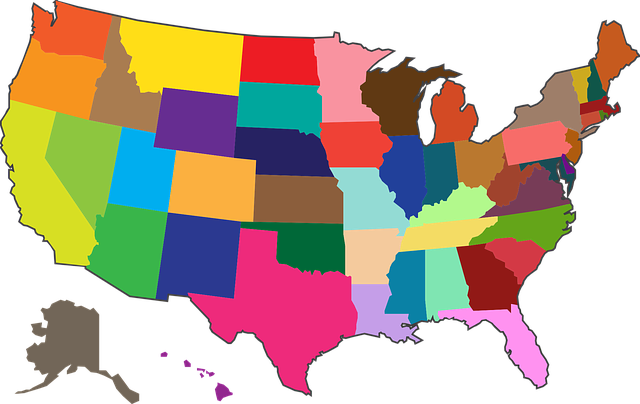
We mainly focussed on ten common factors of the landlord-tenant relationship, such as rental increases, eviction notices, security deposits and warranty of habitability.
We then came up with a system that ranked the worst and best scenarios for a landlord and tenant. This system is based on ten aspects that we’ll explore later.
In this article, we will look at the states that have the worst and best laws for renters, as far as real estate is concerned.

What Are The Laws For Renters?
So, what are the laws for renters? Every tenant has a right to live in a secure, safe and quiet environment that operates within the law. The tenant rights might vary from one state to another.
For instance, the rights you have in Keego Harbor, Michigan may differ from those in Austin, Texas. No matter what, though, tenants are responsible for paying rent, adhering to the terms of the agreement, and taking care of the property.
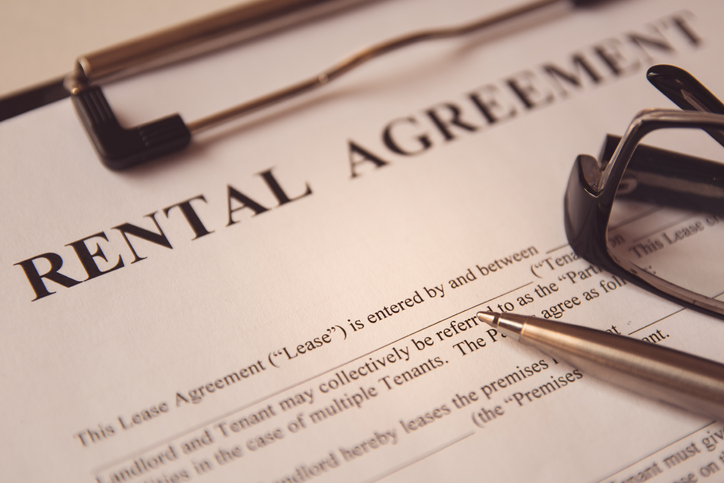
The United States is made up of different states, with each of the states having the right to make their own state and local laws. However, states can only create legal regulations that agree with federal law.
For instance, the Fair Housing Act requires anti-discrimination practices to create a habitable home. It’s the duty of house owners and renters to ensure this happens.
The independence of states to create legal regulations has made every state develop unique regulations and laws that depend on their respective culture.

For instance, the southern states have always relied on agriculture for a long time, therefore valuing their land. These states end up designing their laws and regulations to protect property and landlords.
The northern states focused more on trade and manufacturing, thus encouraging more immigration to Europe. This made more people work in factories and stay in crowded cities. It meant developing more legal policies to regulate rents.
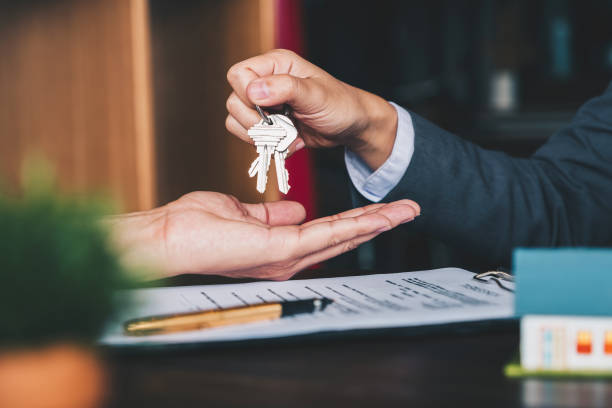
The regulations and laws in the mountain states seem to be in favor of landlords. This can be attributed to the fact that renting wasn’t common here, thus there was no opposition from renters.
In areas where tenants outnumber landlords, the policies and regulations lean towards protecting tenants. For instance, there might be policies that allow pets in apartments.
Most & Least Friendly States with Rental Regulations
Vermont came on top as the most renter-friendly state, which was followed closely by Hawaii and Delaware. According to our analysis, other states that took good care of renters were Maine, Alaska, D.C, Rhode Island, Michigan, and Arizona.

The state laws and regulations in West Virginia and Arkansas were the least friendly to renters. The other states with the least favorable legal regulations and landlord-tenant laws were North Carolina, Ohio, Colorado, Idaho, Georgia, Louisiana, Wyoming, and Mississippi.
Arkansas is the only state on the list where tenants can face rental-related criminal charges. No matter what, tenant rights must be upheld by every landlord.

How Different Can Rental Housing Laws Be?
Renter laws are different from one state to another, and even from one city to another. For instance, tenants in Washington D.C. don’t abide by the same laws as renters in Atlanta.
Let’s take a simple illustration to show how the state laws and regulations vary:
Case Where Landlord Doesn’t Do Maintenance On-Time
Take a case where Peter lives in Vermont, while Mary lives in Arkansas, and they are both looking for a fair housing apartment that provides the conditions of a habitable home.
Each of them signs a one-year rental agreement and hopes that they’ll maintain a good relationship with the landlord.
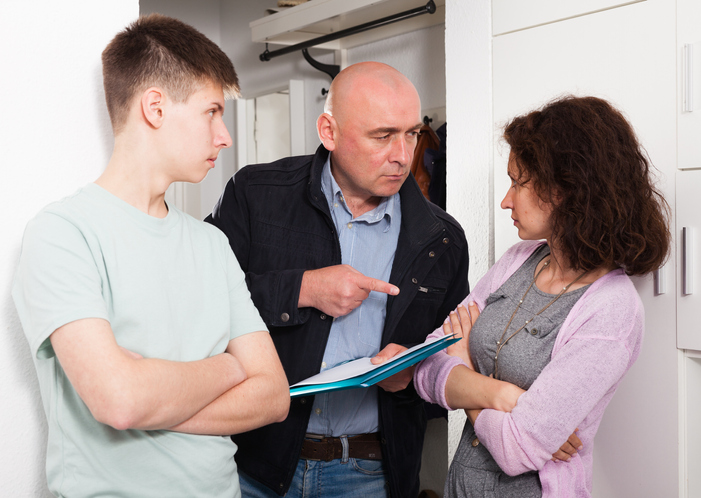
Just a few days into the rental agreement, their respective apartment breaks down. They report the issue to their landlords, but neither is willing to fix the problem.
In such a case, Peter is allowed, by law, to withhold his rent until the problem is resolved. Mary is forced, by state regulations, to continue paying rent, even though the problem at hand isn’t solved.
The only option that Mary has is to express her concerns to the landlord, hoping that things will work out in her favor.
Case Where Someone Pays Rental Fee Late
As time goes by, both Peter and Mary encounter a problem that forces them to be late on rent by five days. Peter gets a 14-day notice informing him to quit the apartment or correct the situation.
A landlord cannot evict Peter by force in such a case. Mary’s landlord might still have a grudge, due to the previous lawsuit in the scenario above, and decide to terminate the lease agreement under the ‘failure to vacate method.

Mary will have just ten days to move out, or else she could face a criminal charge. The only solution for her is to find the money, pay the landlord, and then move out of the apartment.
Case Where Renter Leaves Personal Property at an Apartment
What if, after moving out a few days later, one of them discovers that they accidentally left their personal property at the apartment? As per Arkansas law, the property now belongs to the landlord, and you can’t do anything about it.
However, according to the Vermont regulations, Peter has 60 days to recover his property. His landlord is required to store it safely for him.

Mary’s landlord can hold the security deposit for another 60 days. In Vermont, a landlord should return the security deposit within 14 days.
Best States for Renting Issues
The relationship between a tenant and a landlord may sometimes prove to be difficult. Most of the time, problems arise because either party isn’t meeting its end of the bargain.
When this happens, there is a need for unbiased and concise legislation to resolve the problem and avoid further misunderstandings. One of the main challenges that every renter faces is the issue of security-related deposits.

At least ten states have limited the amount of security deposit that can be collected by the landlord to be equal to the amount of one month’s rent. Among these states are the District of Columbia, Kansas, Rhode Island, Hawaii, and Massachusetts.

In some states, you’ll not have to wait for a long time after your lease has expired, and you have moved out, to get your security deposit money back. Most tenants prefer to use the same money to pay a security deposit for their next apartment.
The luckiest renters are from Montana, who are required to receive their security deposit within ten days of vacating. Some states require landlords to refund security deposits within 14 days, which include Arizona, Vermont, Nebraska, Hawaii and South Dakota.

There are times when you don’t have money at exactly the time rent is required. In such a case, you would like to have some allowance to look for rent before you’re kicked out.
The District of Columbia offers the longest termination notice of 30 days. You’ll receive a 14-day if you live in Wisconsin, Massachusetts, Tennessee, Vermont and Minnesota.

Every tenant deserves to receive advance notice before a fair housing rent is increased. If you live in Delaware, Vermont and Georgia, a landlord must give you a 60-day before a rental increase can commence.
However, those in Hawaii, Nevada, Michigan and Maine, among others, should receive the notice 30-days before. The notices vary depending on state.
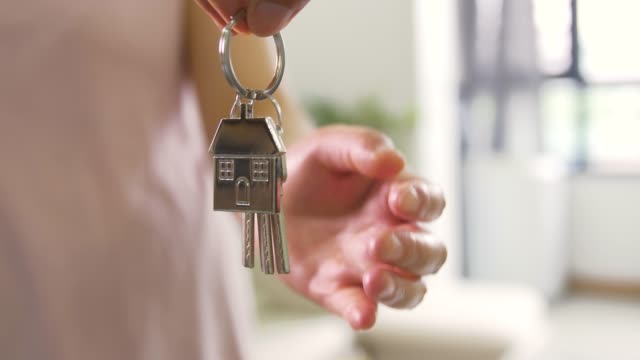
Worst States for Renting Issues
When it comes to having bad regulations for renters, no state is perfect. For instance, Vermont, which has some of the best and legal regulations, doesn’t set limits for security deposits. Other states under this category include New York, Georgia, Texas, Washington and Illinois.
A tenant should also be allowed to withhold paying rent if the landlord fails to provide essential services such as hot water, electricity, and heat. There are at least 11 states that don’t allow this landlord-tenant law, which includes Louisiana, Texas, North Carolina, Alabama and Georgia.
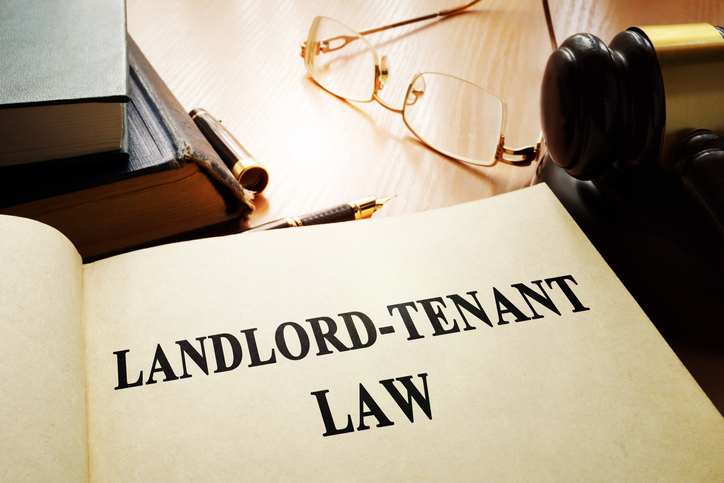
There are at least 14 states that give landlords the power to employ harsh measures, such as an unconditional quit notice, against tenants who violate their lease agreement. Some of these states include Hawaii, South Carolina, Arizona, Virginia and Rhode Island.
However, the situations that permit applying these legal regulations include breaches of rental agreements such as prostitution, illegal drug possession and other criminal activities.
Some states, such as West Virginia, South Carolina, and Georgia, may offer such notice on late rental payment. It’s important to pay your rental fee on time, no matter where you reside.

States such as Georgia, South Dakota, Missouri, New Jersey and Maryland give landlords the power to terminate a rental agreement and file for eviction if a tenant is late on rental payment.
There are other legislations you must consider and include:
- In the state of Illinois, regulations on abandoned rental property cover only crops
- In the state of Wisconsin, if a tenant decides to sell any abandoned property, they must give the money to the Wisconsin Department of Administration to help feed the homeless.
- No state allows utility shut-offs and lockouts.
You can research more about your state’s landlord-tenant laws.
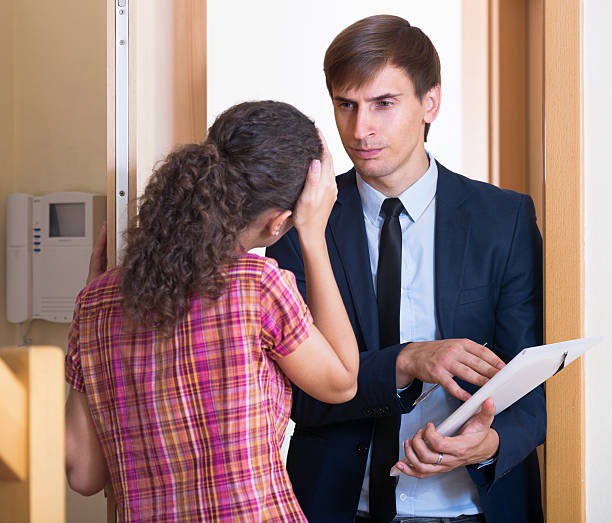
Ranking Methodologies that We Used
We employed the following ten aspects to rank states as far as landlord-tenant laws and relationships are concerned:
● Security deposit return deadlines
● Security deposit maximums
● Repair & deduct policy
● Rental increase notices
● Landlord access to the property
● Withholding rent policies
● Termination of tenancy notices
● Abandoned tenant property
● Lease violation termination notices
● Nonpayment termination notices

Conclusion
There is no argument that every renter wants a place where they will feel at home. Whether you’re looking for a one bedroom or two bedroom apartment, you must consider a state where the regulations are friendly.
A place like Cass Lake Front Apartments could be ideal for you. With that said, we hope that you settle in the best state where you’ll access quality housing at an affordable price.
Read more
December 7, 2020 at 2:32 pm
·
Justin Becker ·
Comments Off on 5 Tips for Moving into an Apartment During Winter
Now that you have signed your apartment lease agreement, it is time to prepare for the relocation. This takes planning, packing, and careful consideration to ensure that everything goes smoothly. That said, there are many tasks you can do ahead of time to make a move easier.
Holidays, New Year’s Eve celebrations, and resting by the fire with family members are all hallmarks of the winter season. As a result, moving may be the last thing on your mind during these months. On the other hand, moving during the winter months may be unavoidable.
If that is the case, you will need to prepare yourself and know how to get through the coldest months of the year. Only after you have checked all the boxes should you contemplate moving.
Tips for Moving into an Apartment
If you are reading this, chances are you are planning to relocate during the winter and want things to go smoothly. Well, we have some apartment tips that will certainly help. Check out our first apartment moving checklist below and make sure you are prepared for all that this season has to throw at you. (Learn more on what to know for first-time apartment renters here)
Let’s dive in!
Keep a Close Eye on the Weather
We are all familiar with the cold, snowy days of winter. However, the winter’s less predictable weather patterns often cause the most trouble and frustration. There is a high chance of dealing with snow and ice during the winter.
The truth is that there is nothing worse than bundling up for a chilly day, only to be bathed in sweat by an unexpected rain shower. Sure, it is nice to have the occasional warm day, but the unpredictable weather weighs on people all winter long and can be frustrating, especially if you are planning to relocate.
One of the most frequently overlooked aspects of a move is the weather. The weather can impact the success and happiness of your move.
When moving, it is important to know the weather patterns in the location where you are moving to. Depending on the region, you will want to make sure your furniture and belongings are prepared for extreme weather conditions.
Also, due to severe weather conditions, some roads may be closed; so be sure to check and see whether your route is one of them.
Make Sure the Utilities at the New Place are Functional
When you move into a new apartment building, there are so many things to prepare. One of the less exciting tasks is getting the utilities set up. With this, you have to go through the hassle of signing up for new electricity and gas providers.
Many people find this a tedious and time-consuming process due to the required documentation and phone conversations. Furthermore, if you don’t know where to begin, signing up for each service can take days, or even weeks.
So think about this: it is moving day and you arrive at your own place to find that the utilities are not connected. It will be an inconvenience, a hassle, and above all, it will make staying in a new neighborhood a lot less enjoyable than it should be, at least initially.
As a result, we recommend setting up your utilities a few days before your moving day. This will make your move easier and your life less stressful.
Double Pack Fragile Items
The winter is a tough season for moving fragile items. Extreme cold temperatures can cause glass, ceramics, and other fragile items to become brittle and break more easily. This can happen because the surface of these materials may change in the cold.
As a result, consider double-packing fragile items to avoid damage (buy boxes, bubble wrap, and packing tape to help protect your items). If you are moving across state borders, keep this in mind because your fragile belongings may take several days to arrive at your new place/new space.
Also, hire movers who can handle your packing and unpacking without damaging your household items. Consider using plastic sandwich bags if you want to keep smaller things organized.
Remember to Bring Blankets
Being prepared is essential in the winter. You never know what will happen, and it is always good to have a backup plan. That is why it is crucial to store all of your cold-weather essentials or basic necessities in one place. Not only are they then easier to find, but they are also close by when you need them.
Who knows, the moving companies/moving services might take longer than expected to arrive at your new location. In the case of this, if you do not have access to your blankets, you will be in big trouble.
How about food? This is one part that many renters often forget during their move-in day. So, pack freezer meals, like stuffed shells, chicken noodle casserole, and more, just to be on the safe side.
Clear Walkways
Shoveling snow is a great way to prepare for the move-in date/move-in day. It can be difficult to find space for a moving truck or caravan in a driveway with layers of snow. Shoveling the snow off your driveway will create more space so you will be able to find parking for your moving truck or caravan. It will also make the area less slippery and dangerous.
Extra Tips
If you want to buy new furniture, measure the floor plan of your new apartment. If you purchase furniture before considering the floor plan, you are likely to have arrangement issues. Learn more on how much does it cost to furnish an apartment here.
Also, make sure to change your apartment locks and get new keys for security purposes. Settling in a new place can be challenging, so talk to your new neighbors for your advice. If you don’t know how to strike up a conversation, begin with asking about the trash pickup days or noise levels.
Pros of Moving in the Winter
Moving to your first apartment during the wintertime can be advantageous for several reasons. For one, it is more affordable to move-in during the winter months. Additionally, less competition in the winter means shorter wait times and more moving options. Let’s explore these and more in greater detail:
Lower Rental Rates
Renting your first apartment in the summer months can be a frustrating experience. With prices soaring and the limited number of spaces available, the process can take up to twice as long as it does in other seasons.
The opposite is true during the winter months, when rental rates are frequently cheaper than during the summer. Instead of keeping a vacant apartment building, landlords are far more prepared to negotiate a lower rent payment in order to get their units filled.
By the time you secure your apartment, you have spent on renters insurance, a security deposit, and other upfront costs. As such, saving money will be a top priority.
Lower Moving Costs/Moving Budget
Logistics businesses are becoming more competitive this time of year. With the arrival of winter, customers are less likely to rent items. As a result, logistics businesses have to work harder in order to attract customers. They do this by offering incentives during winter, which may include discounted delivery and lower rates on rental items.
Movers are More Available
Due to the low rental demand this time of year, the supply of movers frequently outnumbers the demand for logistics, making it more simple to locate a mover/moving company. Due to high demand during the summer months, you may need to book trucks one or two months in advance prior to moving day.
Less Competition for Apartments
During the winter, many people choose to stay in their apartments rather than move. Consequently, there is less competition for available rental properties during the winter months. The high demand for properties during the summer months directly impacts rent prices and availability.
Cons of Moving in the Winter
To some, winter can be a magical time of year. However, you should be aware of some drawbacks to this season. That said, let’s find out the cons of the moving process during the winter:
Possibility of Water Damage
Moving into your first apartment during the winter is very common, but it can also be detrimental to your items. You could be making your items susceptible to damage from potential water leaks. Ensure that all of your electronics are properly protected, and plan a few days to clean up the apartment before moving.
School Changes
Moving during the winter months means that your kids will have to change schools in the middle of the year. One of the most stressful parts of moving is figuring out what to do with your kids’ education.
Cold Temperatures
The cold weather is never a good time for an apartment move or relocation, but the extreme cold makes it even more difficult. It is important to plan ahead and ensure you have the proper supplies on hand if you are going to move in this kind of weather.
Icy Sidewalks
Snow and ice are on their way. Weather-wise, we all know what that means – it is time to get those shovels out! Often, it is a smart thing to clear the sidewalks before the trucks arrive at your new apartment.
You May Miss Out on Holidays
The winter months conjure up images of festive moods, feasting, and celebrations with family and friends. If you plan to move during this time, you may miss out on a holiday.
Ways to Prepare Your Apartment for Winter
Winter can be difficult for many people, with the cold weather and shorter days. It can also be devastating to those living in apartment buildings with poor insulation, who cannot control the temperature of their own homes. With that said, here are some tips on how to prepare your first apartment for winter:
Start with Your Curtains and Drapes
The cold weather can be quite tough to deal with. You need to bundle up indoors, but that does not always keep a comfortable temperature throughout the space. Upgrade your home’s window dressings with some heavy drapes, and you will feel cozier in no time.
One way is by buying thermal curtains, which insulate against cold drafts and can keep your home warmer during the winter months. It is a more economical way to keep the heat in.
Fix Air Leaks
One of the ways that air leaks inside is through gaps around windows and doors. Weatherstripping and caulking can help to fix these issues. Learn much more on how to keep apartment warm in winter here.
Get Your Existing Floor Rugs and Carpets Cleaned to Keep Your Feet Warm
If you live in a place that experiences cold winters, then stepping on a cold floor at any time of the year can be unpleasant. Imagine how much more comfortable you will be on your feet during the winter months if you had a floor rug in front of your fireplace.
Check Your Warm Clothes
There are many different ways to stay warm. One of the best ways is to wear layers of clothes that can be worn on top of one another. This will trap the heat in your body and keep you warm.
Prepare an Emergency Kit
An emergency kit is a must-have for any household. Having an emergency kit stocked with necessary supplies, such as canned food, flashlights, bottled water, and much more, can prove to be a life-saving decision.
Try a Humidifier
During cold winter months, it is important to take steps now to prevent dry skin and other skin irritations or infections. You can do this by using a humidifier or getting yourself a humidifier.
Is it Hard to Move During the Winter?
Moving to your first apartment in the winter can be more difficult than in the summer. The cold weather necessitates double packaging for sensitive objects, as well as additional work that you may not have had to undertake during the summer months.
Is it Better to Move in the Winter or Summer?
Moving in the winter months could be ideal if you want to save money because of the lower rental rates and cost of logistics. However, if you prefer nicer weather and more housing options, the summer months are ideal. Find out more about what is the best month to look for an apartment here.
Take Away
Always make sure you are moving to the right location — a place where you have easy access to local grocery stores, dine-in restaurants, and public transport (this could help cut down your living expenses).
Remember to update your old address to your new address/current apartment, too. If your new place is not registered, visit the nearest post office to have them add your address.
Tying it All Together
With winter comes the challenge of packing up your things in freezing temperatures to move them to your new apartment/first apartment. Pack clothes and cleaning supplies, tuck all of your blankets in, and have anything that will keep you warm close to ensure you are sufficiently prepared.
Lastly, during packing, make sure you have the items you need first easily accessible. Toilet paper rolls, a shower curtain, a coffee maker, and other kitchen essentials should be close at hand; instead of packing them in the truck, consider bringing them with you.
Read more
